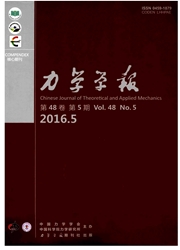

 中文摘要:
中文摘要:
首先考察了概率密度演化理论中的点演化和群演化与概率空间剖分的关系.继而,讨论了点集筛选的基本准则.在此基础上推广了点集偏差的概念,对非均匀、非正态的一般多维分布,提出了广义F偏差(GF偏差)的概念,避免了偏差计算的NP难解问题.探索了GF偏差与EF偏差的关系.以GF偏差最小化为准则,建议了概率空间最优剖分与点集重整的新策略.结果表明,上述方法能够处理包含多达数10个随机变量的结构动力响应概率密度演化分析问题.最后,指出了需要进一步研究的问题.
 英文摘要:
英文摘要:
The probability density evolution method (PDEM) provides a feasible approach for nonlinear stochastic re- sponse analysis of multi-degree-of-freedom systems. In the present paper, the point evolution, ensemble evolution and the partition of probability-assigned space are firstly revisited. The criterion for point selection is then explored. The concept of generalized F-discrepancy (GF-discrepancy), which avoids the NP-hard problem of computation, is introduced for random variables of general non-uniform, non-Gaussian distribution as an index to measure the quality of a point set. The relationship between GF-discrepancy and EF-discrepancy is explored and the error bound is studied by the extended Koksma-Hlawka inequality. Based on the GF-discrepancy, a new strategy for point-selecting and space-partitioning is proposed. The numerical example shows that the proposed method enables highly accurate probability density evolution analysis of nonlinear structures involving dozens of non-uniform random variables. Problems to be further studied are discussed.
 同期刊论文项目
同期刊论文项目
 同项目期刊论文
同项目期刊论文
 Dimension reduction of the FPK equation via an equivalence of probability flux for additively excite
Dimension reduction of the FPK equation via an equivalence of probability flux for additively excite Nonlinear Response of Structures Subjected to Stochastic Excitations via Probability Density Evoluti
Nonlinear Response of Structures Subjected to Stochastic Excitations via Probability Density Evoluti 期刊信息
期刊信息
